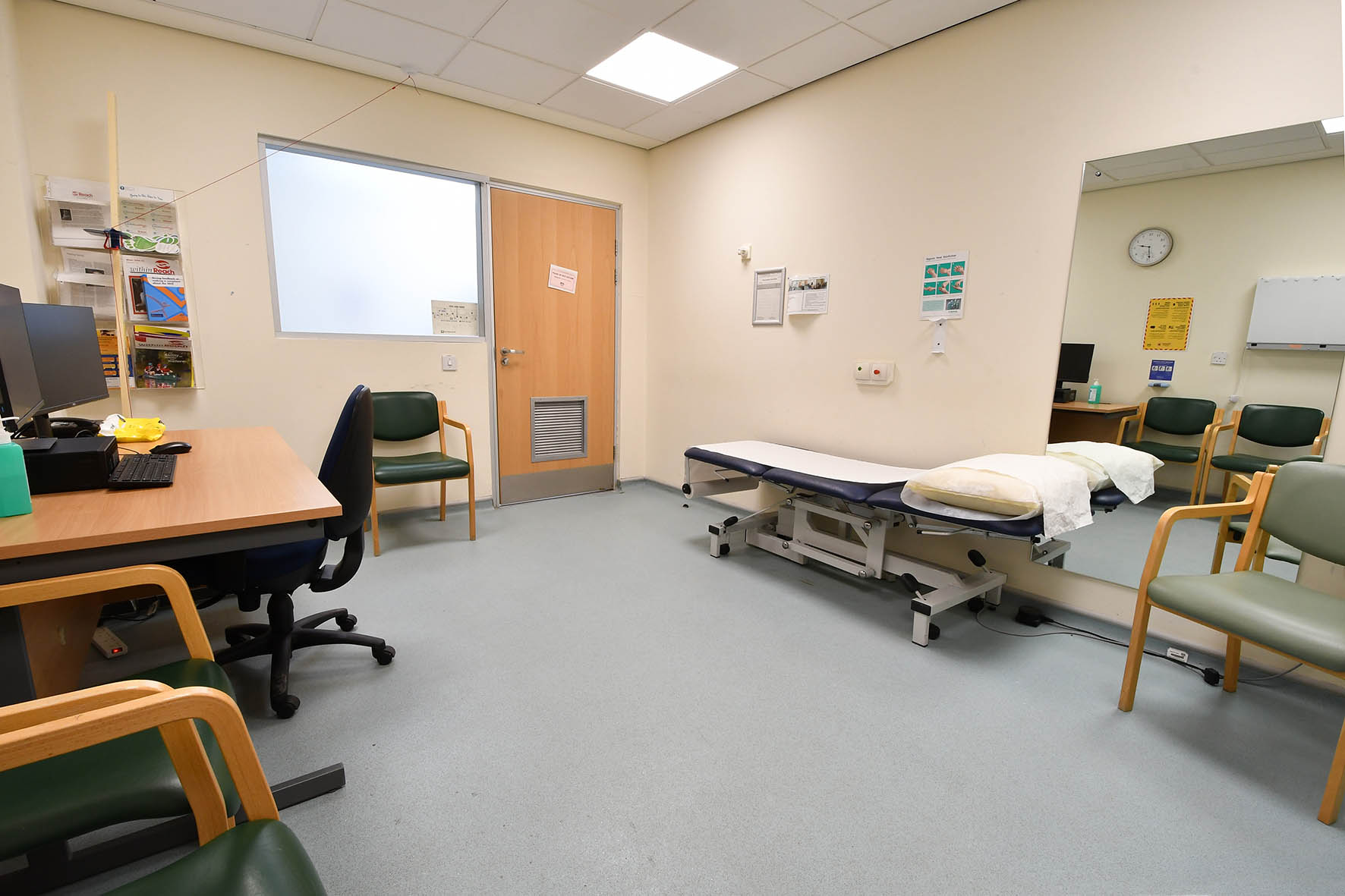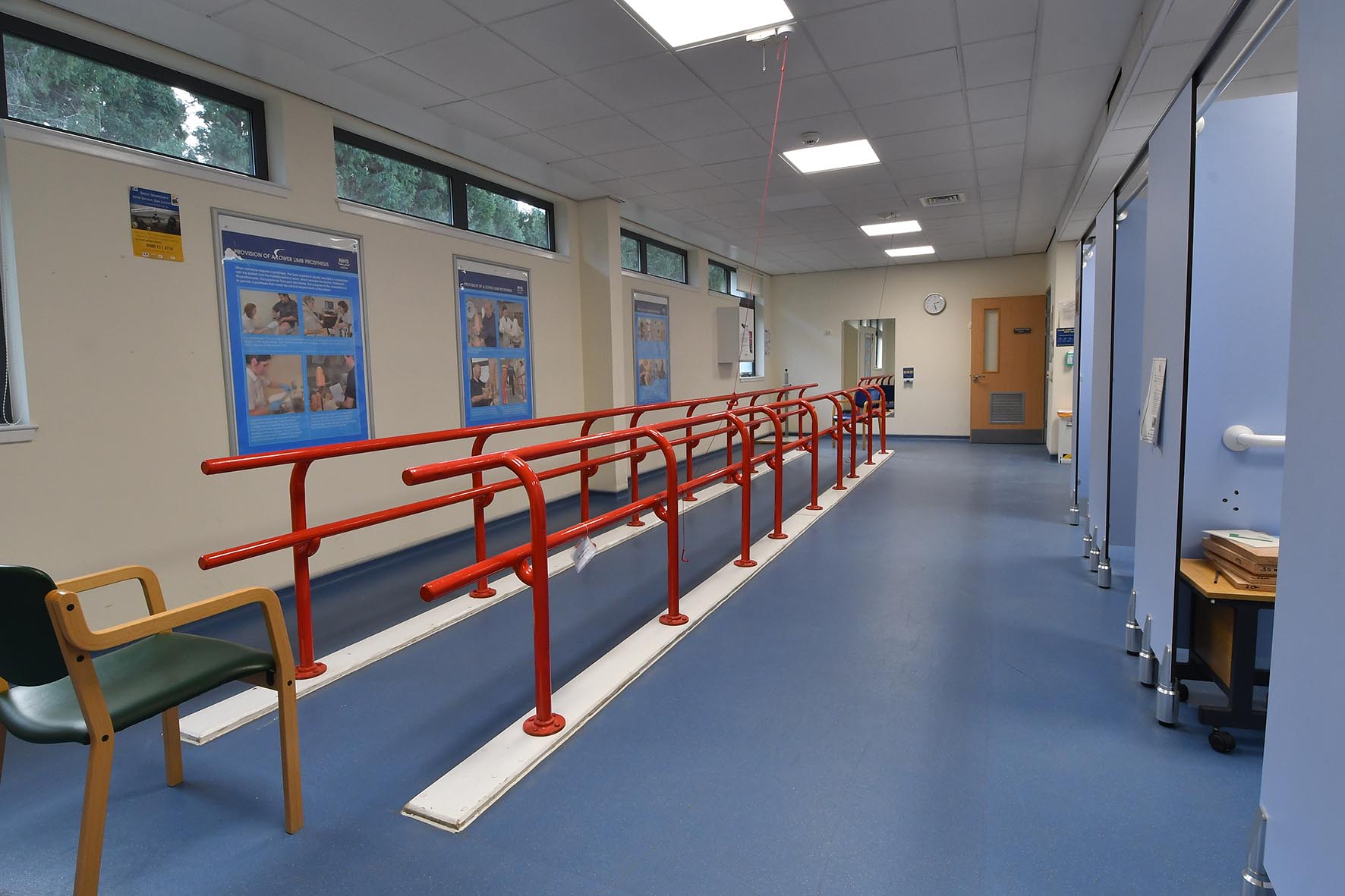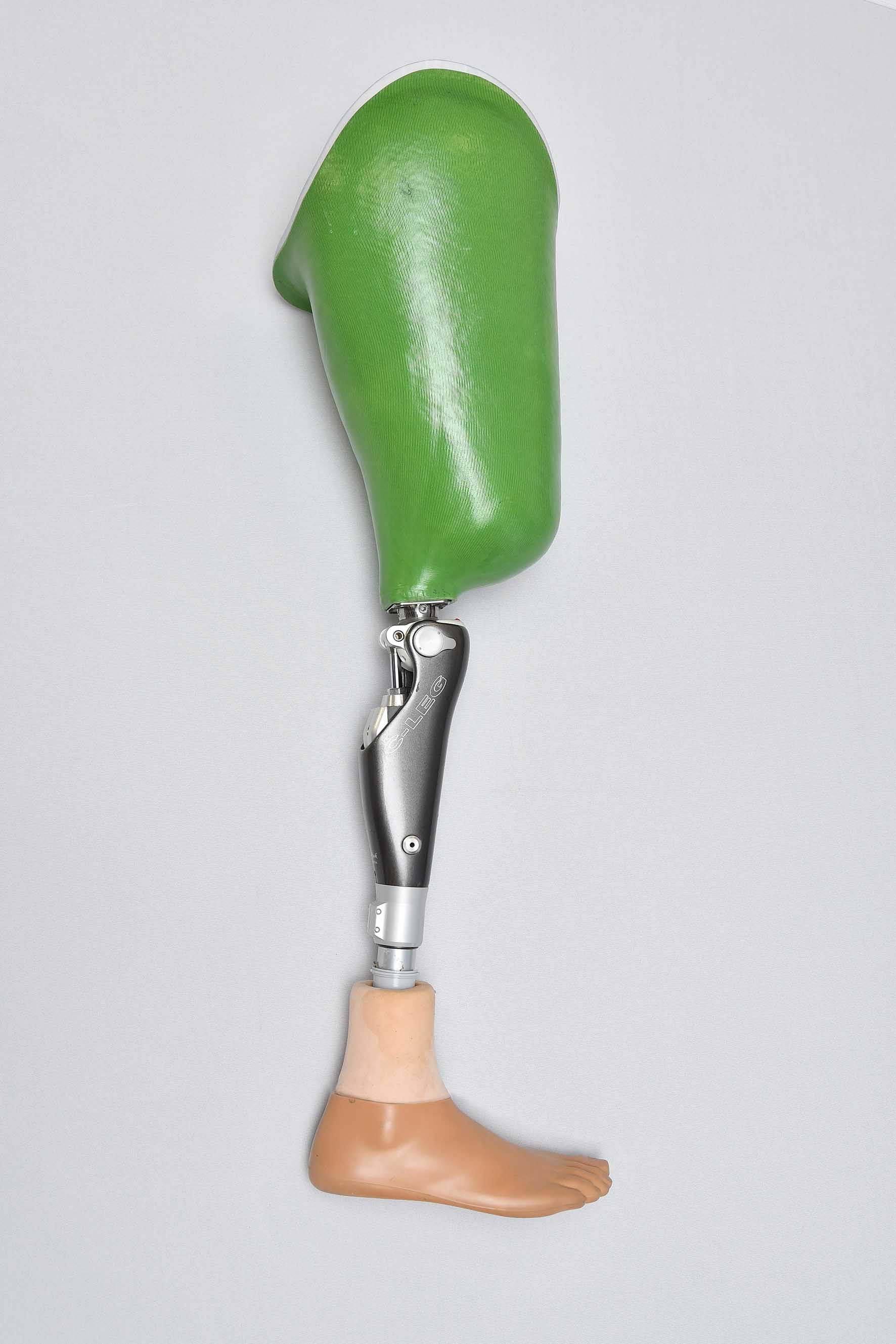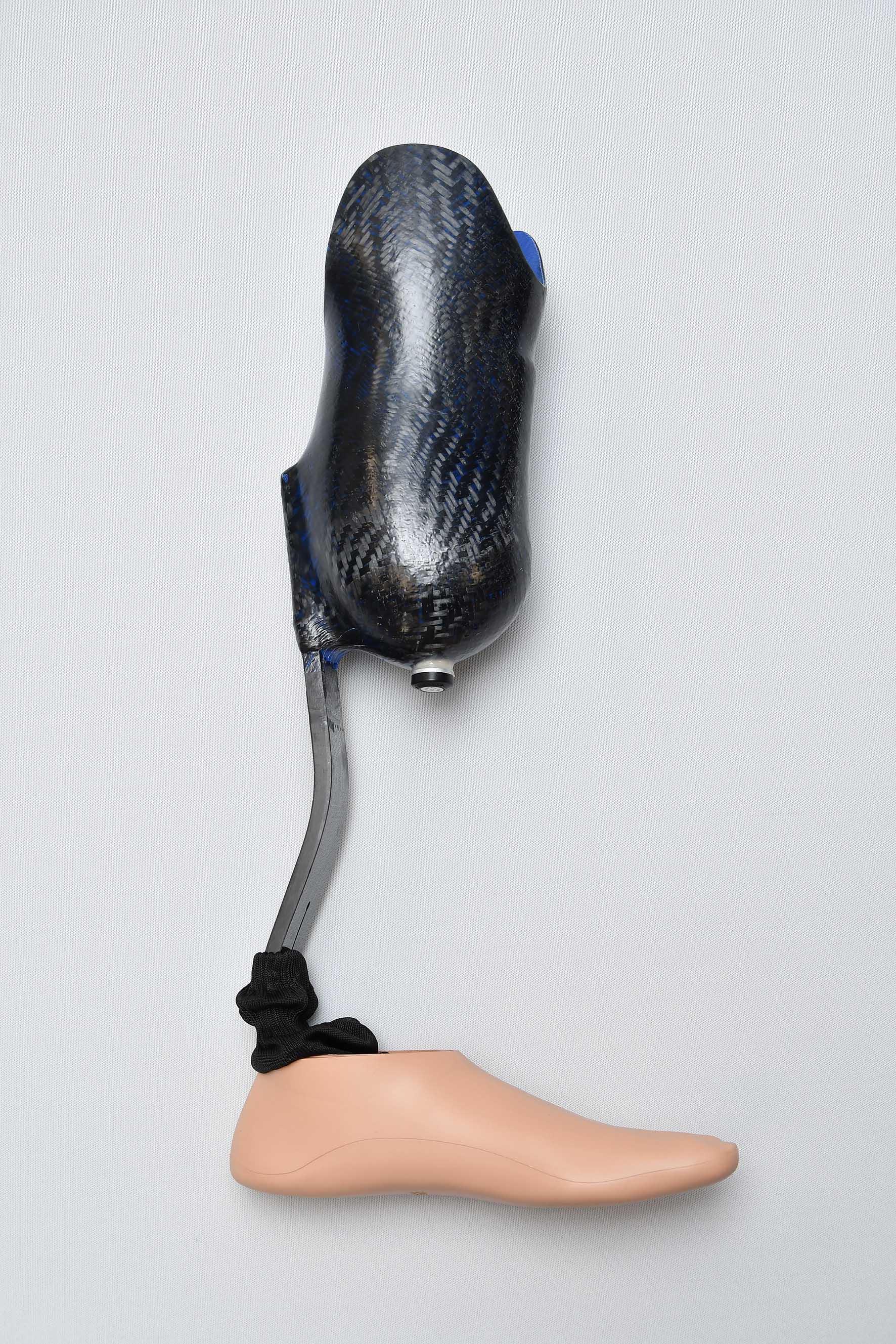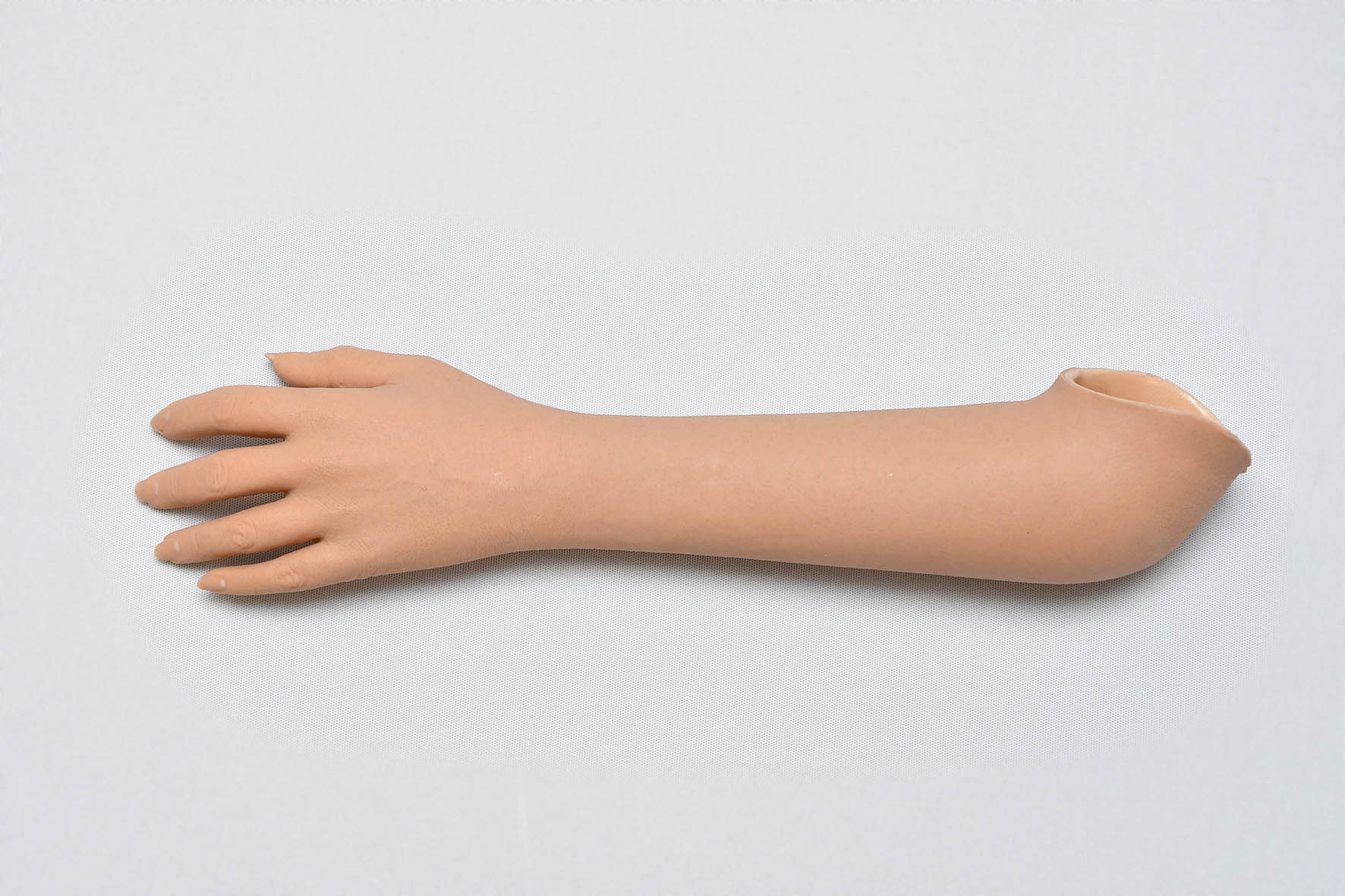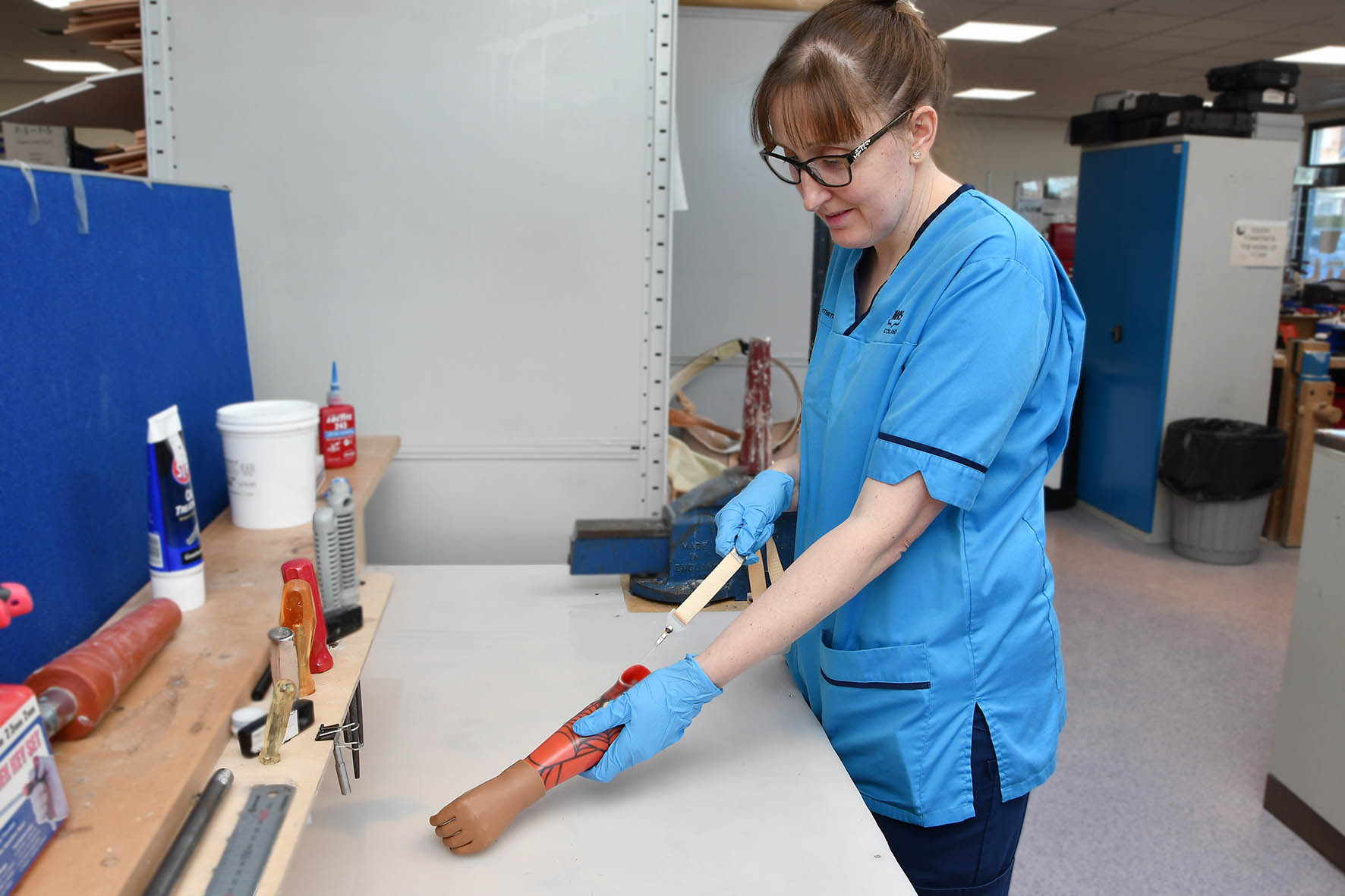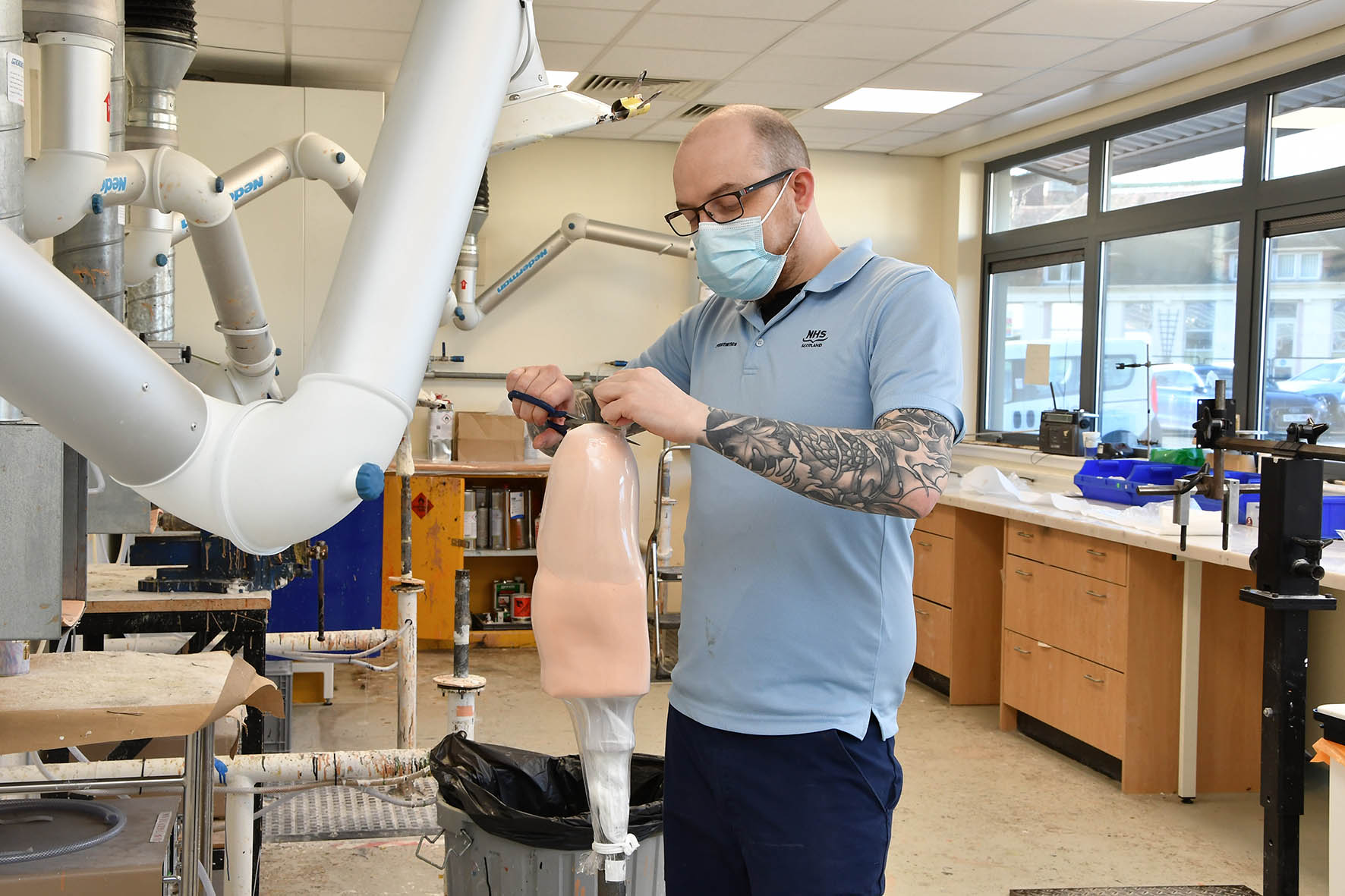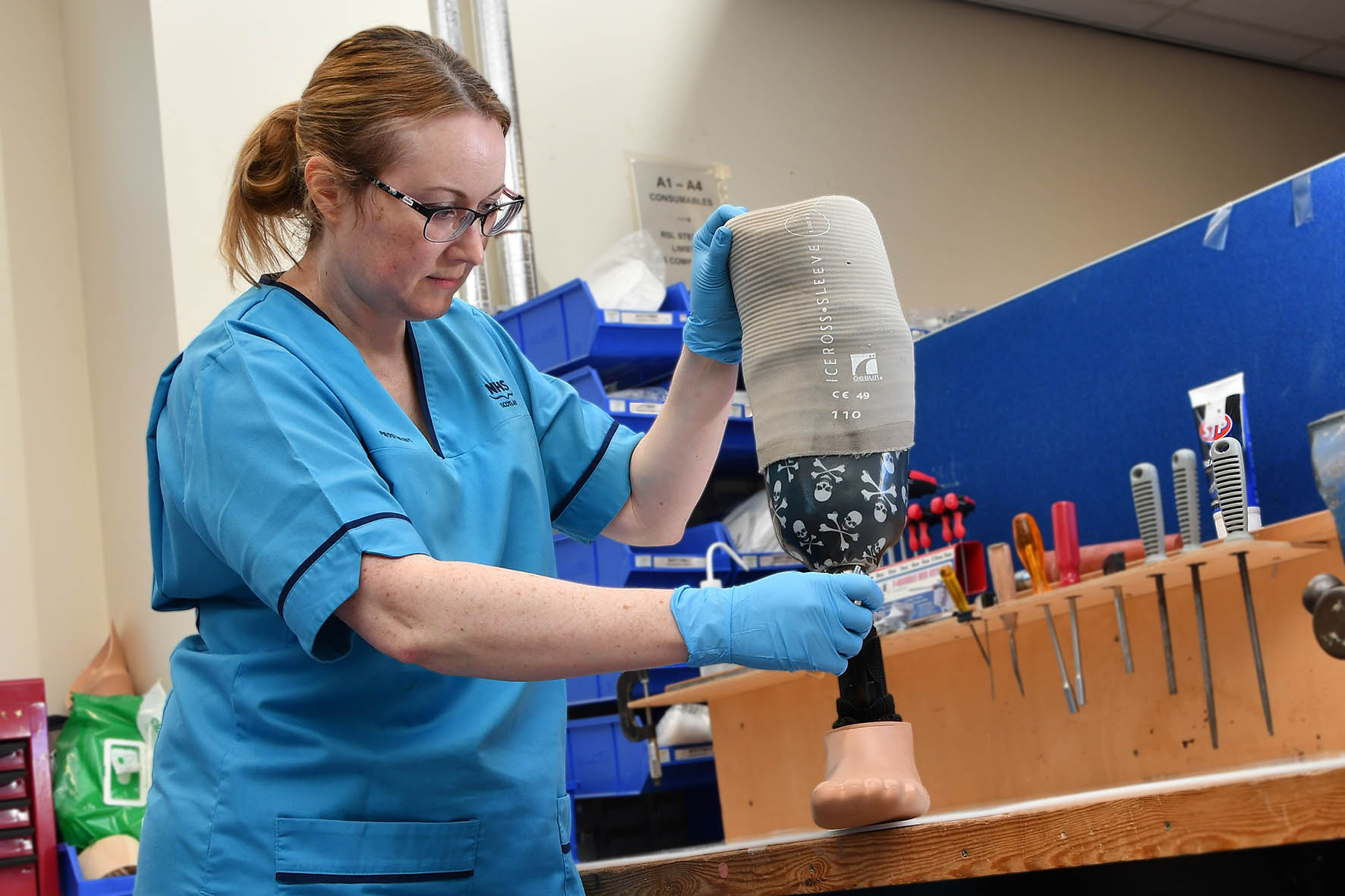Prosthetics
The prosthetics service strives to provide a high level of care for amputees, including those with acquired or congenital limb shortening, to help them reach their mobility potential and activity goals.
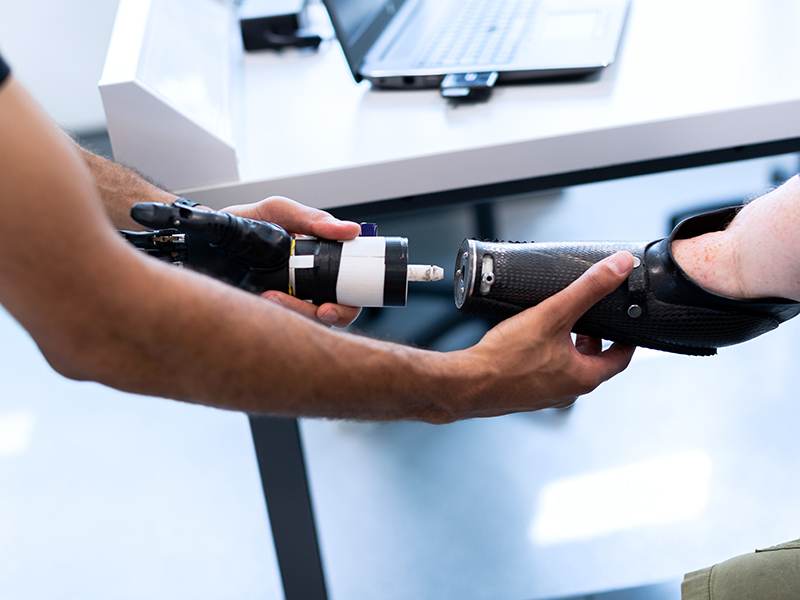
What We Do
The prosthetic team are experienced in assessing, designing and fitting prostheses appropriate to individual patients and their lifestyle. Our clinicians work as part of a wider multidisciplinary team to ensure you receive the best possible outcome. Ongoing care is available to ensure the prosthesis is maintained and continues to meet your needs.
The Prosthetics Service provides upper and lower limb prosthetic treatment to approximately 1500 children and adults primarily from Lothian, Fife and the Borders with some patients travelling from other Scottish Health Boards. There is an average of 100 new patients and 3000 outpatient appointments per year. The department consists of a team of eight Prosthetists, two Prosthetics Team Leads, five Technicians and a Technical Team Lead. The team is managed by the Head of Prosthetics and Orthotics Service.
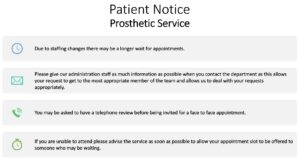
More Information
We work as part of a multidisciplinary team (MDT), which includes the patient, Nursing staff, Occupational Therapists, Physiotherapists, Rehabilitation Consultant, and Psychologist. We are involved in weekly ward rounds for inpatients and MDT clinics, assessing and reviewing new and existing outpatients.
Patients are allocated a Prosthetist on referral and may attend for clinic, review/assessment, casting, fitting, adjustment and repair appointments. Established patients can refer themselves for review, adjustment or repairs, or be referred by a carer, doctor or Allied Health Professional. There is an on-site workshop where our technical team manufacture and repair new and existing limbs.
SMART Prosthetics Services, in conjunction with WestMARC Prosthetics Services, Glasgow, deliver the Scottish Specialist Prosthetics Service (SSPS). The multidisciplinary team are responsible for the assessment, prescription and provision of enhanced function prostheses for eligible patients. The SSPS accepts referrals for patients from Prosthetics Services across Scotland.
What happens at my appointments?
Initial Assessment
The majority of amputations of the lower limb are carried out by vascular and orthopaedic surgeons. Following amputation, most patients within NHS Lothian and the vascular unit at the Royal Infirmary of Edinburgh are transferred to the Astley Ainslie Hospital for their post-amputation care lead by a Consultant in Rehabilitation Medicine. Those patients who have been discharged will be seen as outpatients.
If the multidisciplinary team (MDT) consider that limb fitting is appropriate and the patient is amenable, the patient will be referred to the Prosthetic Department at the SMART centre. They will then be assessed by their Prosthetist and when swelling is stable, the wound is ready and the patient is physically able, a cast will be taken of the residual limb, using plaster of Paris or digital imagery (TracerCAD). The Prosthetist will use this to prescribe, design and manufacture a prosthetic limb,incorporating numerous social and medical factors including the patient’s general health, goal, fitness level, clinical needs, life-style and personal requirements.
Fitting
For those who have recently undergone amputation, their limb is aimed to be ready with a target of 1 week after casting. This involves donning the prosthesis, assessing the fit and feel of the socket, before enabling the patient to stand and take their first steps. The prosthesis is then aligned and adjusted specifically for each individual to provide an optimum gait pattern for their everyday or specialist needs. Additional appointments may be required, for example if an initial check socket fitting is required to ensure optimum shaping of the socket is achieved. before proceeding to the definitive fitting stage.
Delivery
The prosthesis is then finalised. This stage allows for the components to be torqued and appropriate safety checks made. A cosmesis or covering can also be added to the prosthesis dependent on personal preference. Trialling of the device at home first is suggested before applying a cosmesis in order to be able to make any changes to fit and alignment that are needed.
Review
For patients receiving their first limb, planned review appointments will be given. Established patients may be provided with planned reviews, ideally on annual basis for maintenance of the limb, and servicing and componentry checks. Alternatively patients can make their own appointment on request. Review appointments aim to essentially and continually review that the prosthesis remains comfortable, safe and fit for purpose. Review appointments are also available with the Multidisciplinary team to allow for changes to the individual patient’s clinical needs, e.g. physiotherapy input, changes to socket or components prescription, or changes to medication.
Repairs
Repair appointments allow for any socket adjustments or repairs to components to be carried out.
Meet the Team
Meet Jess one of our current Modern Apprentices working for the SMART Service based in Edinburgh as an Orthotics and Prosthetics Technician. Jess provides an overview in the video below of what she does at work and at college to help you decide if this is a career for you.
Information Leaflets
Prosthetics Limb Service – Introduction
Lower Limb Provision – Appointment Information
Prosthetics Limb Service – Looking after yourself and your prosthesis
Prosthetics Limb Service – Frequently Asked Questions
Prosthetics Limb Service – Troubleshooting Advice
Prosthetics Limb Service – Useful Contacts
Useful Links
https://www.disabilityscot.org.uk/
https://disabilityequality.scot/
https://www.gov.uk/driving-medical-conditions
https://www.gov.uk/government/publications/disabled-travellers/disability-and-travel-abroad
How to Refer
New patients on the ward or outpatients will be referred by the Rehab Consultant or MDT team.
Existing patients or outpatients can contact Prosthetic Admin staff to request appointments for reviews, adjustments or repairs.
FAQs
What does a Prosthetist do?
A Prosthetist is an Allied Health Professional who designs artificial replacements, or prostheses, for limbs that have been amputated or are congenitally absent. They offer a vital service to people who have an amputation or are born without a limb or who have particular conditions or injuries that affect their movement or body image.
How do you get certified as a Prosthetist?
To qualify, a Prosthetist must complete an Honours Degree course in Prosthetics and Orthotics. There are two universities in the UK that offer this degree – University of Strathclyde, Glasgow, and University of Salford, Manchester. Keele University now offer a two year MSc program.
Are Prosthetists registered with a professional body?
All of our Prosthetists are state registered with the Health and Care Professions Council (HCPC). The HCPC is a regulator set up to protect the public, by setting and maintaining standards for training, professional skills, behaviour and health. Prosthetists are expected to undergo Continuing Professional Development (CPD) on a regular basis to maintain their registration and continue to use the protected title of the profession and practise as a Prosthetist.
Read our general FAQsContact
For sock and liner requests, please complete this form.
Existing patients can contact the prosthetic service to request a review, adjustment or repair appointment. This can be done via telephone on 0131 357 9444 between 0900 and 1600, Monday to Friday, excluding NHS public holiday.

